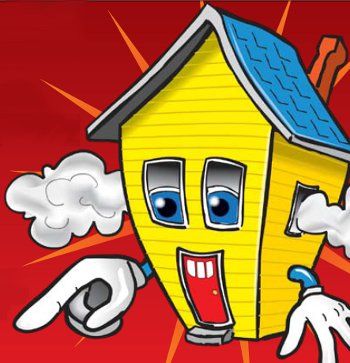
Publisher:
Bonnie King
CONTACT:
Newsroom@Salem-news.com
Advertising:
Adsales@Salem-news.com

~Truth~
~Justice~
~Peace~
TJP
Oct-23-2010 11:09

 TweetFollow @OregonNews
TweetFollow @OregonNews
Cooling Temperatures Prompt Safe Heating Advice from the State Fire Marshal
Salem-News.com
 |
(SALEM, Ore.) - As overnight temperatures in many parts of the state dip into the 30s and lower, State Fire Marshal Randy Simpson is urging Oregonians to have fireplaces, woodstoves, and other heating appliances inspected for safety.
"With the onset of cooler weather, we want to remind homeowners to have the chimneys and flues on their fireplaces and woodstoves cleaned and inspected before using them," says Simpson. There have been at least five home fires in the past week related to fireplaces and woodstoves, with one of these fires resulting in the death of a 6-year-old child.
Tragedies like this can be avoided if homeowners remember to have their fireplaces, woodstoves and other heating appliances professionally inspected before using them."
From 2005 through 2009 in Oregon, there were 2,323 home heating-related fires resulting in eight deaths, 70 injuries, and more than $37 million in property loss. Eighty percent of home heating fires occur during October through March.
Oregonians can keep themselves safe by following these home heating safety tips:
Fireplaces and Woodstoves
• Have chimney and woodstove flues inspected and cleaned each year by a qualified chimney sweep. Ask them to check for creosote deposits, soot build-up, or physical damage.
• Always use a fireplace screen. Make sure the screen is made of sturdy metal or heat-tempered glass to prevent sparks from escaping.
• Keep a clutter free environment. Store kindling, fire logs, and wood at least three feet from any heat source.
• Dispose of ashes in a tightly covered metal container and place the container outdoors at least ten feet from the home and any other nearby buildings. Ashes may retain heat for days after they appear out.
Portable Space Heaters
• When using portable heaters make sure they come with an automatic tip-over switch and a high-temperature limit switch. The tip-over switch turns the heater off if it is knocked over. The high-temperature limit switch regulates the heater, preventing it from overheating.
• Give heaters space. Keep at least three feet of space between the heater and combustibles such as furniture, curtains, papers, and people.
• Check heater electrical cords. If the cord is frayed, cracked, or becomes hot have it serviced.
• Never use an extension cord with a portable electric heater. It can overload the circuit and cause a fire.
• Unplug heaters when not in use or before going to bed.
Electric Baseboard and Wall Heaters
• Be aware of electric baseboard or wall heaters. These heaters are thermostatically controlled and turn on without warning when temperatures drop. Keep combustibles at least three feet from these types of heaters.
Propane Appliances
• If using a propane-fueled heater, make sure it is designed for indoor use. Read all of the manufacturer's instructions and make sure it is properly vented.
• Do not use barbecues indoors for heating or cooking.
• Make sure propane-fueled appliances are properly vented and follow all manufacturer instructions.
• If you smell gas, do not operate any switches, appliances, or thermostats. A spark from any one of these could ignite the gas. Get everyone outside and away from the building. Shut off the gas supply. Call your propane supplier from a neighbor's phone.
• Avoid kerosene heaters. They can emit poisonous fumes.
Smoke Alarms and Home Escape Plans
• Working smoke alarms alert you to a fire and more than double your chances of surviving a fire. In a fire, minutes could mean the difference between life and death.
• Install smoke alarms in every home, on every level, outside each sleeping area and in each bedroom.
• Test and vacuum your smoke alarms each month to make sure they are working.
• Smoke alarms 8- to 10-years-old or older should be replaced.
• Make a home escape plan and practice it with your family at least twice a year.
Carbon Monoxide Dangers
• Home heating and cooking equipment that burn fuels such as gasoline, wood, coal, natural gas, propane, oil and methane are sources of carbon monoxide.
• Carbon monoxide poisoning can be fatal if not detected early.
• If you burn one of these fuels for home heating, make sure your carbon monoxide alarm is working properly.
For more home fire safety tips, visit: www.oregon.gov/OSP/SFM/Com_Ed_Section.shtml.
For more smoke alarm information, visit: www.oregon.gov/OSP/SFM/CommEd_SA_Program.shtml#Smoke_Alarm_Q___A.
For more information on carbon monoxide and Oregon's carbon monoxide law, visit: www.oregon.gov/OSP/SFM/CommEd_CO_Program.shtml.
Articles for October 22, 2010 | Articles for October 23, 2010 | Articles for October 24, 2010
Quick Links
DINING
Willamette UniversityGoudy Commons Cafe
Dine on the Queen
Willamette Queen Sternwheeler
MUST SEE SALEM
Oregon Capitol ToursCapitol History Gateway
Willamette River Ride
Willamette Queen Sternwheeler
Historic Home Tours:
Deepwood Museum
The Bush House
Gaiety Hollow Garden
AUCTIONS - APPRAISALS
Auction Masters & AppraisalsCONSTRUCTION SERVICES
Roofing and ContractingSheridan, Ore.
ONLINE SHOPPING
Special Occasion DressesAdvertise with Salem-News
Contact:AdSales@Salem-News.com
googlec507860f6901db00.html




Terms of Service | Privacy Policy
All comments and messages are approved by people and self promotional links or unacceptable comments are denied.
Anaya October 28, 2010 11:38 pm (Pacific time)
The tips given are really worth while. I found this very much interesting and useful in our daily work.
[Return to Top]©2025 Salem-News.com. All opinions expressed in this article are those of the author and do not necessarily reflect those of Salem-News.com.